
Open
CCAA — Student Work Placement Program (SWPP)
Last Update: October 27, 2025
Canada
Canada's program offers paid aviation internships for students
Wage Subsidies And Interns
At a glance
Funding available
Financing goals
Integrate new technologies
Develop a new product
Optimize production processes
See more
Eligible Funding
- Maximum amount : 7,000 $
- Up to 70% of project cost
Timeline
- Unspecified
Eligible candidates
Eligible Industries
- Transportation and warehousing
Location
- Canada
Legal structures
- Non-profit
- Public or Parapublic institution
- For-profit business
- Sole proprietorship
Annual revenue
- All revenue ranges
Organisation size
- All organization sizes
Audience
- Canadians
- Youth (<40)
Non-profit candidates
Sector of operation
- Higher Education
- Employment and Training
- Business Associations
- Professional Associations
Target groups
- Business owners / entrepreneurs
- Academia / students
Revenue structures
- All structures
Scope
- National
Overview
The Student Work Placement Program (SWPP) offers financial support up to $7,000 per placement to foster partnerships between employers and post-secondary institutions in Canada, enhancing work-integrated learning opportunities for students. The program aims to provide students with quality work experiences in high-demand fields, particularly focusing on the aviation and aerospace industry, through eligible activities like co-op placements, internships, and applied projects.
Activities funded
- Creation and implementation of student work placements integrated with academic learning in the aviation and aerospace sectors.
- Development of partnerships between employers and post-secondary institutions to support student experiential learning opportunities.
- Execution of work-integrated learning projects such as co-op terms, internships, field experiences, or applied projects addressing workplace challenges in the aviation and aerospace industries.
Examples of admissible projects:
$ 5,000
Applied project to optimize airplane fuel efficiency
$ 5,000
Internship for designing eco-friendly aircraft components
$ 5,000
Field placement to study meteorological impacts on flight safety
$ 5,000
Internship placement for creating an aerospace materials database
$ 7,000
Hire an intern to develop an intuitive navigation system for aircraft
$ 7,000
Co-op placement to develop flight simulation software
Eligibility
- The company must be involved in the aviation and aerospace industry, either directly or as a supplier of goods and services to the sector.
- An Employer Form must be completed and signed.
- The employer must provide a company description, including business number and website.
- The employer must offer a work placement that supports the aviation and aerospace industry.
- Salaries for the placement cannot be funded by another federal program.
Who is eligible?
- Companies directly involved in the aviation industry
- Companies directly involved in the aerospace industry
- Suppliers of goods and services to the aviation industry
- Suppliers of goods and services to the aerospace industry
Who is not eligible
- Companies that are not directly or indirectly involved in the aviation and aerospace industry.
- Organizations that finance student salaries for placements through other federal programs or use federal operating funds to pay student wages.
Eligible expenses
- Wages and salaries paid to students during approved work placements.
Eligible geographic areas
- All regions across Canada
Selection criteria
- Demonstration of a net increase in the number of student work placements compared to the previous year.
How to apply
1
Employer Registration and Preparation
- Engage with the aviation and aerospace industry or related supplier industries.
- Complete the Employer Form online with necessary information such as business description, business number, and website URL.
- Provide proof of student enrollment in a Canadian post-secondary institution and a detailed job description.
- Prepare a work/learning plan for the student and sign the student employment contract including all terms of employment.
- Ensure no other federal funding is used for the student salaries.
2
Student Registration
- The student must complete the online Student Form, ensuring their details match with the Employer Form.
- Provide proof of enrollment in a Canadian post-secondary institution to the employer and CCAA.
3
Application Submission
- Both the employer and student must submit their respective forms.
- Work must be confirmed with eligible students prior to application submission.
- The CCAA will assess eligibility criteria within 48 hours and contact the employer.
4
Contract Signing and Payment Schedule
- Once approved, provide simple supporting documents for final application processing.
- Sign a contract with the CCAA and agree on a payment schedule.
5
Meet the Net Increase Clause
Demonstrate a net increase in student placement numbers compared to the previous year to access funding.
Additional information
- The employer and student application forms must contain matching names and email addresses for validation.
- Approval from CCAA is mandatory before the internship’s start date.
- Employers are encouraged to use the CCAA’s online matching service to find eligible students.
- Students must give permission for periodic reporting of employment information to CCAA and the Government of Canada during and after the placement.
Contacts
swpp@avaerocouncil.ca
(613) 727-8272 ext. 232
Canada
Apply to this program
Frequently Asked Questions about the CCAA — Student Work Placement Program (SWPP) Program
Here are answers to the most common questions about the CCAA — Student Work Placement Program (SWPP). This section explains what the program is, how much funding is available, eligibility requirements, application deadlines, and other important details to help you determine if this grant is right for your business.
What is the CCAA — Student Work Placement Program (SWPP)?
How much funding can be received?
Who is eligible for the CCAA — Student Work Placement Program (SWPP) program?
What expenses are eligible under CCAA — Student Work Placement Program (SWPP)?
Who can I contact for more information about the CCAA — Student Work Placement Program (SWPP)?
Where is the CCAA — Student Work Placement Program (SWPP) available?
Is the CCAA — Student Work Placement Program (SWPP) a grant, loan, or tax credit?
Apply to this program
More programs like this
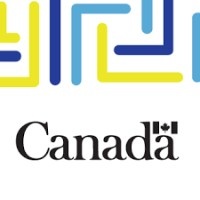
Grant and FundingClosed
Advancing Accessibility Standards Research
Accessibility Standards Canada (ASC)Supports research advancing federal accessibility standards in Canada
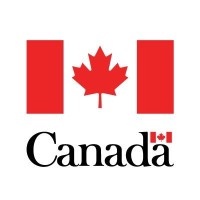
Grant and Fundingnull
Airport Critical Infrastructure Program (ACIP)
Transport Canada (TC)Supports large Canadian airports with safety and connectivity investments
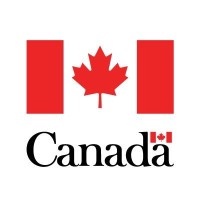
Grant and FundingClosed
Zero Emission Vehicle Awareness Initiative — Light-Duty Vehicle — For-profit
Natural Resources Canada (NRCan)Funding to increase awareness for the reduction of vehicle emission
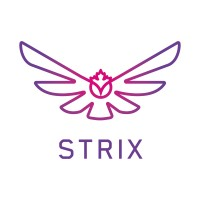
Partnering and CollaborationGrant and FundingOpen
The Initiative for Sustainable Aviation Technology (INSAT)
StrixFunding to accelerate sustainable aviation technology innovation in Canada

Grant and FundingOpen
Energy Innovation Program — Clean Fuels Call for Proposals
Natural Resources Canada (NRCan)Advances clean fuel technologies for environmental sustainability
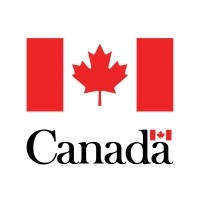
Grant and FundingOpen
Disaster Financial Assistance Arrangements (DFAA)
Public Safety Canada (PSC)Provides federal financial assistance for large-scale natural disaster recovery

Grant and FundingClosed
Transportation Assets Risk Assessment (TARA) Program
Transport Canada (TC)Funding to assess climate risks to federal transportation assets

Researchers And FacilitiesExpert AdviceOpen
NRC — Reverberant Acoustic Chamber - Research Facility
National Research Council Canada (NRC)High intensity noise testing facility in Ottawa

Grant and FundingClosed
Search and Rescue New Initiatives Fund
Public Safety Canada (PSC)Funding for search and rescue initiatives
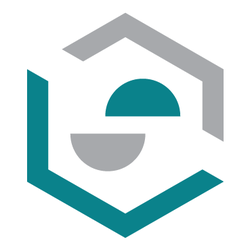
Partnering and CollaborationGrant and FundingOpen
Strategic Innovation Fund (SIF)
Innovation, Science and Economic Development Canada (ISED)Strategic Innovation Fund supports transformative Canadian economic investments
Sign up to our platform to access the CCAA — Student Work Placement Program (SWPP) information sheet for free
Get access to 4,000+ programs, practical guides, personalized alerts, and an AI assistant to support your grant applications.